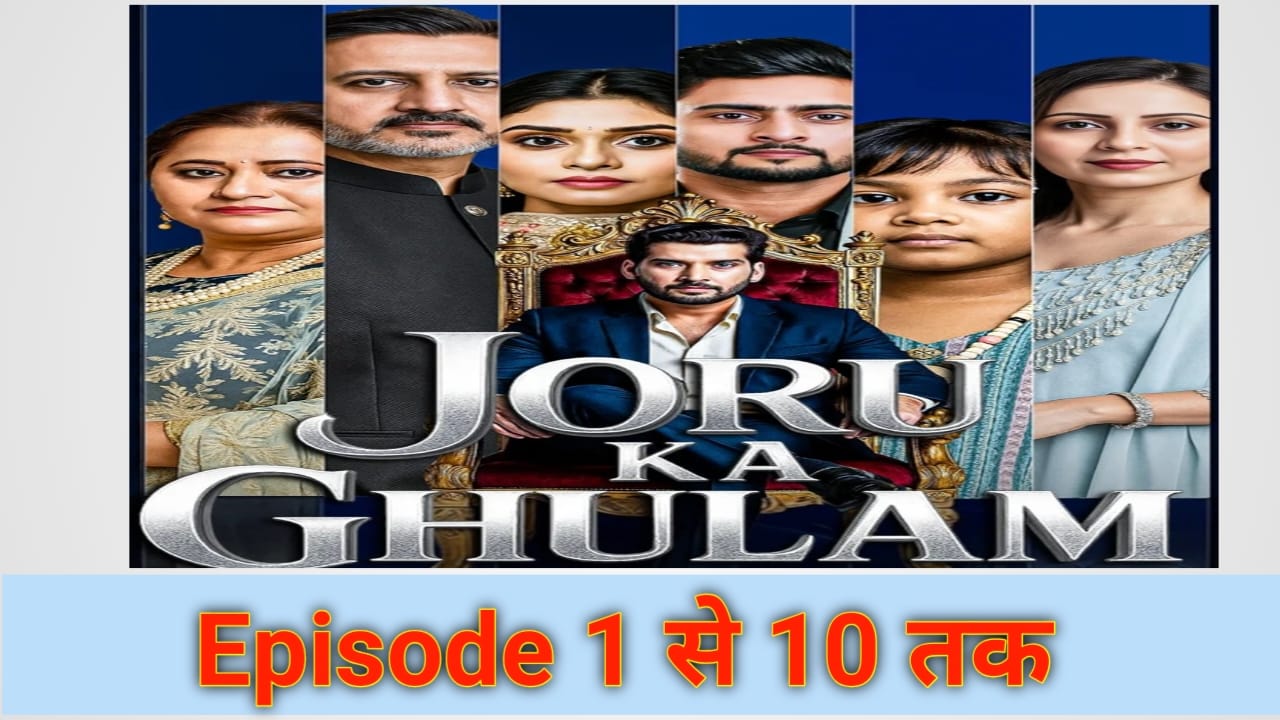Every good story must end with clarity, and in Joru Ka Ghulam, the laughter-filled journey of a husband and wife culminates in a resolution that is both emotional and practical. By the time the final arc unfolds, the show has shifted from being merely a comedy about a “submissive” husband into a thoughtful commentary on love, responsibility, and foresight.
The Climax: A Trip That Changes Everything
In the final stretch, the wife convinces her husband to take a short vacation—a long-promised trip that symbolizes her dream of living life fully. At first, the husband resists, citing costs, responsibilities, and his ever-growing financial stress. But realizing how much joy it would bring his wife, he agrees.
Their journey begins on a high note. Scenic views, laughter, and togetherness rekindle the spark in their marriage. Yet, as fate would have it, unexpected obstacles arise—lost baggage, a sudden illness, and even a cancelled flight.
For the audience, this sequence is entertaining but also eye-opening. It highlights the unpredictability of life and mirrors the importance of travel insurance. Just as the couple realizes the risks of traveling unprepared, viewers are reminded that adventure and security must go hand in hand.
-
Travel Insurance Parallel: A vacation is meant to bring joy, not stress. But without coverage for medical emergencies, flight cancellations, or lost belongings, the smallest setback can turn into a disaster. The couple’s struggle becomes a metaphor for this lesson—joy must always be balanced with preparation.
The Emotional Realization
The challenges during the trip bring out the rawest emotions in the couple. The husband admits his constant fear of financial ruin, while the wife confesses she never realized how heavy his burden was. Tears flow, but so does laughter—because at last, they are honest with each other.
This honesty becomes their true turning point. The husband learns that love is not about hiding struggles, and the wife understands that dreams must be balanced with planning. The “joru ka ghulam” image fades, replaced by the portrait of a real partnership—equal, vulnerable, and strong.
The Resolution: Building a Secure Tomorrow
Returning home, the couple makes a pact. They will no longer fight about luxuries or hide truths. Instead, they will sit together and plan their future—dreams included, but secured by foresight.
Here the narrative ties into overall financial planning. The husband, once burdened by loans and secrecy, now involves his wife in every decision. Together, they explore:
-
Life Insurance – to ensure family stability if tragedy strikes.
-
Health Insurance – to prevent medical emergencies from draining their savings.
-
Car Insurance – to protect their daily commutes and future purchases.
-
Home Insurance – to safeguard the house that holds their dreams.
-
Travel Insurance – to ensure every journey is joyful, not stressful.
-
Education Loans & Financial Investments – to build a foundation for their children and their own retirement.
The message is clear: love is not just about fulfilling today’s wishes—it is about ensuring tomorrow’s safety.
The Humor That Softens the Lessons
Even in its most serious moments, Joru Ka Ghulam never loses its comedic touch. For example, when the husband proudly sets up a financial planning spreadsheet, the wife jokingly calls it their new “marriage contract.” Audiences laugh, but they also see the wisdom—financial planning is not boring; it is an act of love.
The Final Message for Viewers
The ending of Joru Ka Ghulam leaves audiences smiling and thoughtful. It reminds us that:
-
A relationship thrives on honesty, not secrecy.
-
Financial planning is not just about money—it’s about protecting love and stability.

-
Insurance is not an expense, but a safety net that makes joy sustainable.
-
Dreams are beautiful, but they become truly fulfilling when secured with preparation.
The husband is no longer seen as just “joru ka ghulam.” He is a devoted partner who chooses love every day, not through blind obedience but through thoughtful action. The wife, too, evolves into a character who understands that responsibility does not kill joy—it protects it.
This final stage ties the humor, drama, and metaphors into one complete arc. It shows that life is not about choosing between love and responsibility, or between joy and security—it is about blending them.
Just as travel insurance protects journeys and financial planning secures futures, true love thrives when both partners walk together with trust, balance, and foresight.
Conclusion of the Series
In the end, Joru Ka Ghulam is more than just entertainment. It is a mirror of real relationships, wrapped in laughter and layered with wisdom. It teaches that being devoted to your partner does not mean being powerless—it means being strong enough to protect them, even in ways they may not see.
The story closes on a heartwarming note: the couple, sitting in their living room, laughing about their past fights while sketching out plans for their next trip. This time, however, they are not just dreaming—they are also preparing. That is the essence of love, and the greatest lesson of Joru Ka Ghulam.
